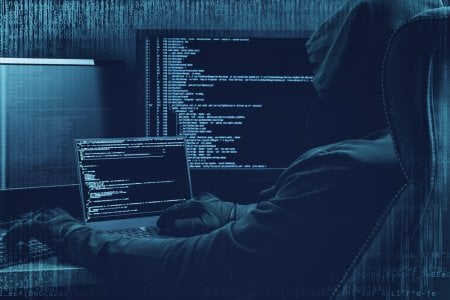Fake or stolen documents become more in demand on dark web, data reveals
By
Seia Ibanez
- Replies 6
In an age where our personal information is as valuable as currency, it's alarming to discover just how inexpensive it is for cybercriminals to gain unauthorised access to our private data.
The digital underworld is evolving, and with it, the cost of cybercrime is fluctuating in ways that may surprise many of us, especially those of us who grew up in a time when the concept of 'hacking' was the stuff of science fiction.
Recent findings have shed light on the dark web's marketplace, where illegal transactions for stolen or fake documents are becoming more expensive due to heightened demand and a decrease in successful scams.
A report from BDO, an accounting firm in the United States, has highlighted a significant increase in the cost of purchasing fake or stolen passports, now averaging $2,372, up from $1,399, and driver's licenses at $844, up from $465.

However, not all prices are on the rise. In a surprising twist, the average cost to hack into someone's email has plummeted to $262, down from $668.
Stan Gallo, a former undercover police officer and forensic investigator, now a forensic services partner with BDO, described the dark web's criminal storefronts as 'quite commercial,' with a significant demand for their offerings.
‘People are making it easy to buy what it is that they're selling. And there is a significant demand,’ he said.
He believed the increase in public awareness, high-profile crackdowns, and enhanced security features in identification documents have made it more challenging for criminals to operate, thus driving up the prices for such fraudulent items.
Gallo explained, 'It's like any other market environment where there's supply and demand. And if there's a restricted supply and the demand is still there, then the price goes up.'
‘And if there's a restricted supply and the demand is still there, then the price goes up. If things are easier to get, then the price will come down because it will drive competition.’
The risks associated with purchasing fake documents or engaging in illegal activities on the dark web are substantial, including the possibility of imprisonment.
Yet, despite these dangers, the market thrives, underscoring the importance of vigilance and education in protecting ourselves from such threats.
The story of Andy (not his real name) served as a cautionary tale.
In June 2022, he was lured into a scam by a social media advertisement featuring a well-known Australian personality, former TV presenter David ‘Kochie’ Koch, only to discover too late that he had been duped out of $9,000.
‘It was about Kochie being interviewed. And during that interview he mentioned that he has made a lot of money through this investment. And I became interested reading that, and there's a link, and then I clicked on the link,’ Andy said.
A few months later, he tried to withdraw the money, only to realise the whole thing was a scam.
‘I don't feel safe now,’ he said.
‘I feel really st***d. Because when I told my wife about this investment, she [said]. “Are you sure you're not falling for a scam?” And I said, “No”.’
When Andy contacted ME Bank about the scam and his lost money, they told him they couldn't retrieve the funds because the scammer had already taken them out of their account.
They also mentioned they wouldn't reimburse Andy since he willingly transferred the money to the scammer's account.
Kochie said he had no part in it, and he did not endorse the fraudulent scheme or the use of his photo in the scam.
The use of celebrity images and false endorsements is a common tactic employed by scammers, and even the Australian Competition and Consumer Commission (ACCC) has taken Meta, the owner of Facebook, to court over the issue.
Figures from the ACCC have highlighted a sharp rise in the number of older Australians targeted by social media scams, with losses reaching a staggering $477 million last year.
The ACCC's Scamwatch data also revealed that in the last three months of 2023 alone, more than $82 million was lost to scammers, with those over 65 suffering the highest losses of any age group.
The Minister for Financial Services, Stephen Jones, is pushing for a mandatory code of practice for social media companies.
‘The problem at the moment is nobody's doing enough,’ he said.
‘There's a lot of grey area there, we want to remove the grey area [and have] clear responsibility.’
The code would include verifying advertisers and compensating victims of scams advertised on their platforms.
Gallo suggested that consumers and businesses can take simple measures to lower security risks.
This includes making sure that passwords for accounts and emails are strong and are regularly changed. Additionally, training staff to recognise phishing emails or ‘to question sudden directions from the CEO to make a large overseas payment’.
He also advised that all businesses should have a plan to deal with potential data breaches or scams.
‘So, when they are breached, what do we do in response? What are our legal obligations? What are our compliance obligations? How do we get the business back up and running as quickly as possible? Do we pay the ransom, or don't we? If that's the case? How do we find out where the data was accessed?’ he said.
‘And all of that's got to be addressed while you're still trying to make your day-to-day budgetary activities, which makes life very stressful for those organisations.’
 Have you or someone you know been affected by a cyber scam? What measures have you taken to protect your online information? Share your experiences and tips in the comments below.
Have you or someone you know been affected by a cyber scam? What measures have you taken to protect your online information? Share your experiences and tips in the comments below.
The digital underworld is evolving, and with it, the cost of cybercrime is fluctuating in ways that may surprise many of us, especially those of us who grew up in a time when the concept of 'hacking' was the stuff of science fiction.
Recent findings have shed light on the dark web's marketplace, where illegal transactions for stolen or fake documents are becoming more expensive due to heightened demand and a decrease in successful scams.
A report from BDO, an accounting firm in the United States, has highlighted a significant increase in the cost of purchasing fake or stolen passports, now averaging $2,372, up from $1,399, and driver's licenses at $844, up from $465.

Reports showed that there has been an increase in purchasing fake documents on the dark web. Credit: Shutterstock
However, not all prices are on the rise. In a surprising twist, the average cost to hack into someone's email has plummeted to $262, down from $668.
Stan Gallo, a former undercover police officer and forensic investigator, now a forensic services partner with BDO, described the dark web's criminal storefronts as 'quite commercial,' with a significant demand for their offerings.
‘People are making it easy to buy what it is that they're selling. And there is a significant demand,’ he said.
He believed the increase in public awareness, high-profile crackdowns, and enhanced security features in identification documents have made it more challenging for criminals to operate, thus driving up the prices for such fraudulent items.
Gallo explained, 'It's like any other market environment where there's supply and demand. And if there's a restricted supply and the demand is still there, then the price goes up.'
‘And if there's a restricted supply and the demand is still there, then the price goes up. If things are easier to get, then the price will come down because it will drive competition.’
The risks associated with purchasing fake documents or engaging in illegal activities on the dark web are substantial, including the possibility of imprisonment.
Yet, despite these dangers, the market thrives, underscoring the importance of vigilance and education in protecting ourselves from such threats.
The story of Andy (not his real name) served as a cautionary tale.
In June 2022, he was lured into a scam by a social media advertisement featuring a well-known Australian personality, former TV presenter David ‘Kochie’ Koch, only to discover too late that he had been duped out of $9,000.
‘It was about Kochie being interviewed. And during that interview he mentioned that he has made a lot of money through this investment. And I became interested reading that, and there's a link, and then I clicked on the link,’ Andy said.
A few months later, he tried to withdraw the money, only to realise the whole thing was a scam.
‘I don't feel safe now,’ he said.
‘I feel really st***d. Because when I told my wife about this investment, she [said]. “Are you sure you're not falling for a scam?” And I said, “No”.’
When Andy contacted ME Bank about the scam and his lost money, they told him they couldn't retrieve the funds because the scammer had already taken them out of their account.
They also mentioned they wouldn't reimburse Andy since he willingly transferred the money to the scammer's account.
Kochie said he had no part in it, and he did not endorse the fraudulent scheme or the use of his photo in the scam.
The use of celebrity images and false endorsements is a common tactic employed by scammers, and even the Australian Competition and Consumer Commission (ACCC) has taken Meta, the owner of Facebook, to court over the issue.
Figures from the ACCC have highlighted a sharp rise in the number of older Australians targeted by social media scams, with losses reaching a staggering $477 million last year.
The ACCC's Scamwatch data also revealed that in the last three months of 2023 alone, more than $82 million was lost to scammers, with those over 65 suffering the highest losses of any age group.
The Minister for Financial Services, Stephen Jones, is pushing for a mandatory code of practice for social media companies.
‘The problem at the moment is nobody's doing enough,’ he said.
‘There's a lot of grey area there, we want to remove the grey area [and have] clear responsibility.’
The code would include verifying advertisers and compensating victims of scams advertised on their platforms.
Gallo suggested that consumers and businesses can take simple measures to lower security risks.
This includes making sure that passwords for accounts and emails are strong and are regularly changed. Additionally, training staff to recognise phishing emails or ‘to question sudden directions from the CEO to make a large overseas payment’.
He also advised that all businesses should have a plan to deal with potential data breaches or scams.
‘So, when they are breached, what do we do in response? What are our legal obligations? What are our compliance obligations? How do we get the business back up and running as quickly as possible? Do we pay the ransom, or don't we? If that's the case? How do we find out where the data was accessed?’ he said.
‘And all of that's got to be addressed while you're still trying to make your day-to-day budgetary activities, which makes life very stressful for those organisations.’
Key Takeaways
- The cost of fraudulent documents like passports and driver's licenses on the dark web has risen due to increased demand and enhanced security measures.
- The average cost to hack into someone's email has dropped, now costing around $262, highlighting the fluctuating and competitive nature of the dark web market.
- Scams on social media, including those featuring fake endorsements from Australian celebrities, have led to significant financial losses and calls for platforms to take greater responsibility and potentially compensate victims.
- The Minister for Financial Services proposes a new mandatory code of practice for social media companies to tackle online scams and improve user safety.








